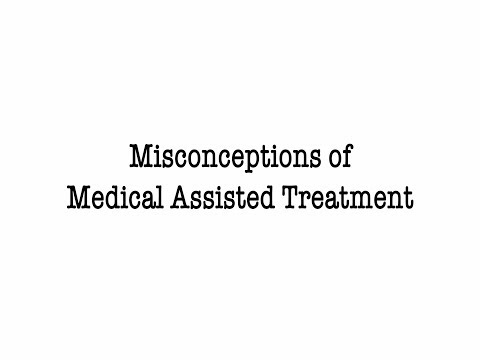Chapter 2: The Medical Assistant and the Healthcare Team
Contents
- The Medical Assistant’s Role on the Healthcare Team
- The Importance of Good Communication among Healthcare Team Members
- The Benefits of a Good Working Relationship among Healthcare Team Members
- The Importance of the Medical Assistant’s Role in Patient Education
- The Medical Assistant’s Role in Promoting a Positive Patient Experience
- The Medical Assistant’s Role in Quality Improvement Initiatives
- The Medical Assistant’s Role in Infection Control
- The Medical Assistant’s Role in Emergency Preparedness
- The Medical Assistant’s Role in Practice Management
- The Future of the Medical Assistant’s Role on the Healthcare Team
The medical assistant is a vital member of the healthcare team. Learn about the different roles and responsibilities of a medical assistant in Chapter 2 of our online course.
Checkout this video:
The Medical Assistant’s Role on the Healthcare Team
The medical assistant’s role on the healthcare team is to provide support to physicians and other medical staff in the delivery of patient care. Medical assistants may be involved in a variety of tasks, such as taking and recording patient medical histories and vital signs, preparing patients for examinations, assisting with procedures, and handling administrative tasks. In order to perform their duties effectively, Medical Assistants must have a good understanding of the physician’s office or clinic’s policies and procedures, as well as a working knowledge of Medical Terminology and anatomy.
The Importance of Good Communication among Healthcare Team Members
Communication among healthcare team members is important for several reasons. First, it helps to ensure that everyone is on the same page and working towards common goals. Good communication can also help to prevent mistakes, as well as improve patient care.
There are many different ways to communicate, and it is important to find the best method for each situation. Some common methods of communication among healthcare team members include:
verbal communication (e.g., face-to-face conversation, phone calls, etc.)
written communication (e.g., memos, emails, charts, etc.)
nonverbal communication (e.g., body language, tone of voice, etc.)
It is also important to remember that effective communication requires both good listening skills and good verbal skills. When communicating with others, try to:
pay attention to what they are saying
repeat back what they have said to make sure you understand them correctly
ask questions if you are unsure about something
be clear and concise in your own communications
The Benefits of a Good Working Relationship among Healthcare Team Members
A good working relationship among healthcare team members can have many benefits for both the medical assistant and the patients. When team members trust and respect each other, they are more likely to communicate effectively, work together toward common goals, and provide high-quality patient care. In addition, a positive team environment can lead to increased job satisfaction for medical assistants and other healthcare professionals. As a result of these factors, patients may also have a better overall experience when receiving care from a cohesive healthcare team.
The Importance of the Medical Assistant’s Role in Patient Education
The medical assistant’s role in patient education is crucial to the overall success of the healthcare team. Patient education is a process in which the medical assistant provides information to the patient about their health condition, treatment plan, and/or disease prevention. The goal of patient education is to empower the patient to make informed decisions about their health.
The medical assistant’s ability to effectively communicate with patients is essential to providing quality patient education. It is important for medical assistants to be able to explain information in a way that is easy for the patient to understand. In addition, medical assistants must be able to tailor their approach to fit the individual needs of each patient.
Patterson & Wilkinson (2017) state that “medical assistants play a vital role in promoting health and preventing disease through patient education” (p. 10). They go on to say that “patient education should be an integral part of every encounter between a medical assistant and a patient” (p. 10).
References:
Patterson, P., & Wilkinson, J. (2017). Professional Medical Assistant (6th ed.). St. Louis, MO: Elsevier Mosby
The Medical Assistant’s Role in Promoting a Positive Patient Experience
The medical assistant’s role in promoting a positive patient experience is centered on providing quality care and customer service. MA’s should be able to put patients at ease, answer their questions, and provide them with the information and resources they need to make informed decisions about their health.
In addition to providing direct patient care, MA’s can also play a role in improving the overall efficiency of the healthcare team. By remaining organized and keeping up with the latest technology, MA’s can help keep the team running like a well-oiled machine.
The Medical Assistant’s Role in Quality Improvement Initiatives
The medical assistant’s (MA) role in quality improvement initiatives can be divided into three main categories: participation, leadership, and promotion.
Participation in quality improvement initiatives is essential for MAs, as it allows them to have a voice in improving the care delivered to patients. MAs should be involved in every aspect of quality improvement, from data collection to analysis and from brainstorming solutions to implementing change.
Leadership in quality improvement initiatives is also important for MAs. In many cases, MAs are the ones who are closest to the work being done and have the best understanding of how it can be improved. As such, they are in a unique position to lead initiatives that will improve patient care.
Promotion of quality initiatives is another key role for MAs. By informing other members of the healthcare team about quality initiatives and encouraging them to participate, MAs can help ensure that these initiatives are successful.
The Medical Assistant’s Role in Infection Control
As a medical assistant, you play a vital role in infection control in the healthcare setting. You are on the front line of defense against the spread of infection, and it is important to be aware of the ways in which germs can spread. In this chapter, you will learn about standard precautions, proper hand-washing techniques, and other measures you can take to protect yourself and your patients from infection.
The Medical Assistant’s Role in Emergency Preparedness
Medical assistants play an important role in emergency preparedness in the healthcare setting. In the event of a natural disaster or other emergency, medical assistants may be called upon to provide medical and administrative support to help ensure the safety of patients and staff.
Some of the specific duties that medical assistants may be responsible for during an emergency situation include:
– Providing first aid and CPR
– Assisting with evacuations
– Managing triage and treatment areas
– Coordinating supplies and resources
– Maintaining communication with patients, families, and other members of the healthcare team
In order to be prepared for an emergency situation, medical assistants should familiarize themselves with their facility’s emergency plan. They should also keep up to date on first aid and CPR training, and be familiar with the supplies and resources that are available to them.
The Medical Assistant’s Role in Practice Management
The medical assistant’s (MA) role in practice management has grown substantially in recent years. In small practices, the MA may be responsible for all aspects of the business, from patient scheduling and insurance paperwork to billing and collections. In larger practices, the MA’s role is likely to be more focused, with responsibility for specific tasks such as patient scheduling, insurance verification, or billing. In all settings, the MA works closely with other members of the healthcare team to ensure that patients receive high-quality care.
The MA’s specific responsibilities will vary depending on the type of practice, the size of the practice, and the state in which the practice is located. However, there are some common tasks that MAs are typically responsible for in most practices. These include:
Scheduling appointments: The MA is typically responsible for scheduling appointments for patients. This may involve coordinating with other members of the healthcare team, such as nurses and physicians, to ensure that each patient’s needs are met.
Insurance verification: The MA is typically responsible for verifying a patient’s insurance coverage before he or she is seen by a physician or other provider. This process may involve contacting the insurance company directly or using an online system to check coverage levels.
Billing and coding: The MA is often responsible for billing and coding services rendered by the practice. This process may involve using a software system to generate invoices and submit claims to insurance companies. The MA may also be responsible for following up on unpaid claims.
The Future of the Medical Assistant’s Role on the Healthcare Team
The medical assistant’s role on the healthcare team is constantly evolving. As the healthcare landscape changes, so too does the demand for medical assistants. The following are some ways that the medical assistant’s role may change in the future:
1. More focus on patient education and engagement. As the healthcare system moves towards a more patient-centered model of care, medical assistants will play an increasingly important role in educating and engaging patients.
2. More involvement in care coordination. Medical assistants will be expected to take on more responsibility for coordinating care among different members of the healthcare team.
3. Greater use of technology. Medical assistants will be expected to be comfortable using a variety of electronic health records and other health information technologies.
4. Increased focus on preventive care. Medical assistants will play a key role in helping patients to prevent illness and promote wellness through lifestyle changes and screenings.







